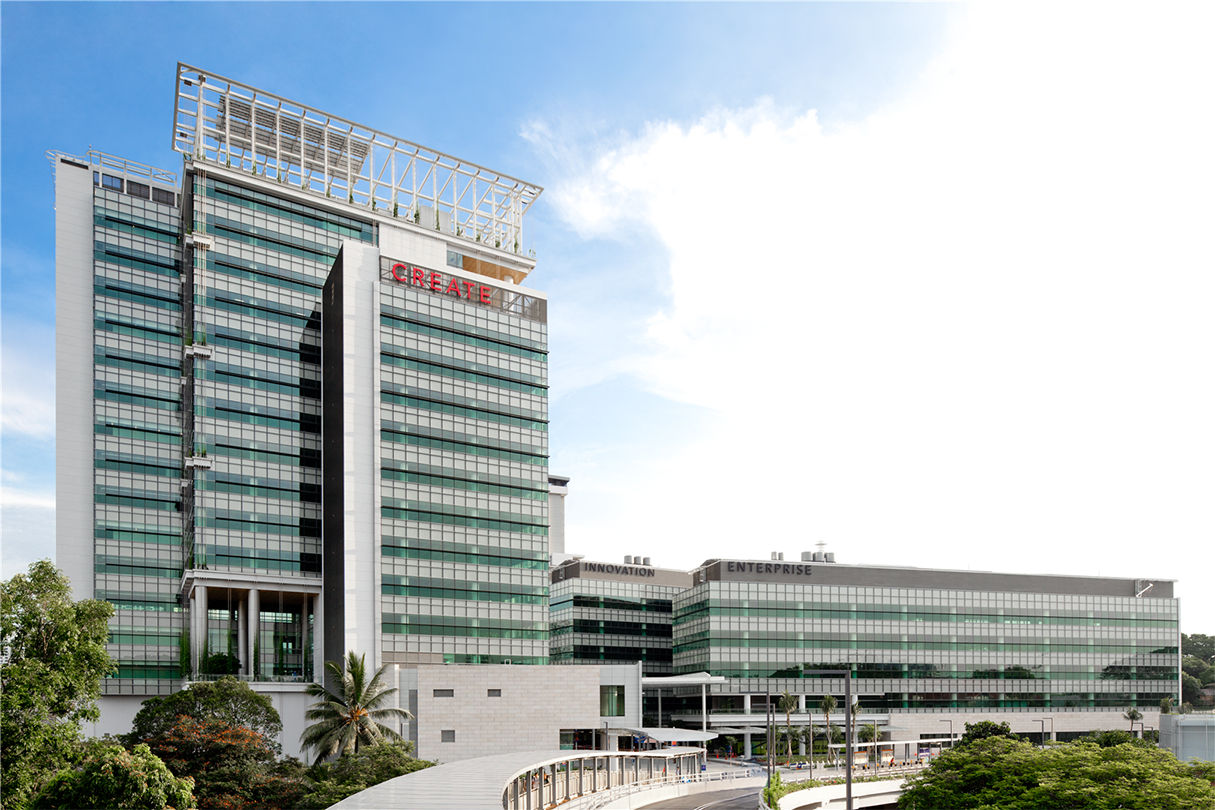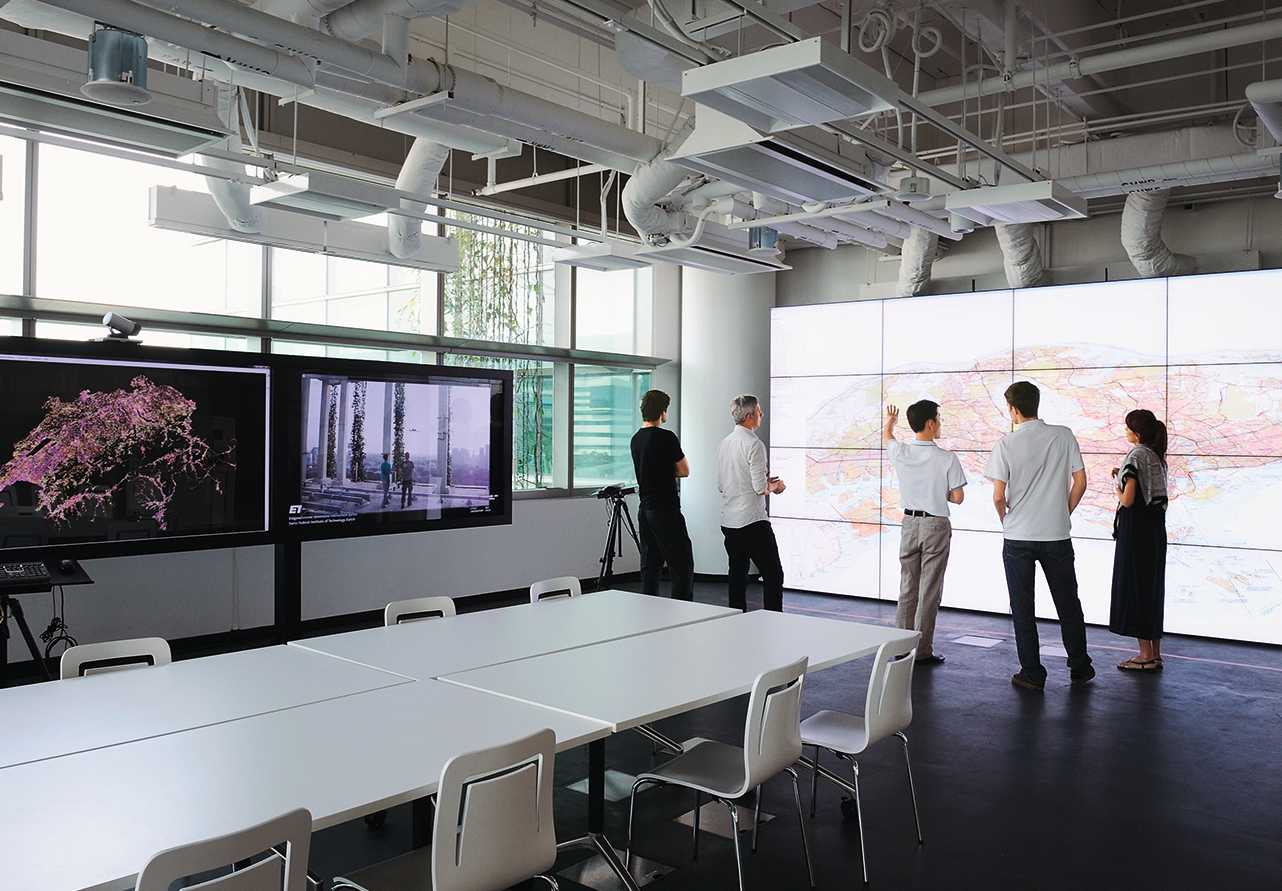Keeping on researching in Singapore
Since 2010, ETH Zurich has forged strong links in Singapore. The Future Cities Laboratory at the Singapore-ETH Centre started recently on its second phase. Reason enough for the "Globe" magazine to take a look at the Swiss research in the city state.
Singapore, 7 July 2015. It’s rush hour and nothing seems to be working. The metro line linking the South and the North is out of operation, and to make things worse, the East-West connection goes down for two hours, too. Over 250,000 commuters are affected. It’s far from normal for this well-organized city in Southeast Asia. In fact, the episode prompted an article by Hans Rudolf Heinimann in the Straits Times, Singapore’s biggest daily paper. In it the ETH professor also mentions a power outage that had forced a temporary shutdown of Singapore’s stock market six months earlier.
More robust networks
Heinimann is interested in how to make systems more resilient and so strengthen infrastructure in its function as a city’s backbone. He is of course also keen to show decision makers in the city state that the Future Resilient Systems research programme can provide the answers to specific issues. The programme is a joint project between ETH Zurich and the National Research Foundation of Singapore that Heinimann has led since the end of 2014 at the Singapore-ETH Centre (SEC).

Future Resilient Systems addresses a whole range of different infrastructures, from the power grid to transportation and banks. The approach is holistic. “Often systems fail not because of the technology but because of the organisation – or because of users, for example in transportation,” explains Heinimann. These, then, are the three factors the researchers look at together. What’s more, the underlying principles are transferable to different systems, as Heinimann points out.
The programme is still in the setup phase, with 45 out of 60 researchers recruited. Heinimann puts a great deal of effort into committing them to a joint purpose: “It’s crucial to work on developing a shared understanding – and it’s an ongoing task, given how many countries and universities the researchers come from. For instance, while some doctoral students develop their own ideas in pursuit of a given objective, others expect to be assigned subtasks for the next weeks,” Heinimann explains. It’s easy to see how much work has to go in at the beginning given this array of backgrounds.
Real data for real solutions
Still, Heinimann and his colleagues have an even greater challenge on their hands: winning the trust of the Singapore government agencies so as to obtain real-world data for use in their research. “People in Switzerland tend to underestimate how difficult this is,” he says. The agreement with the National Research Foundation, for instance, states that in the first three years, models are to be developed using generic data. Only then will decision makers in Singapore decide whether or not to supply the researchers with real-world data. It is obvious that infrastructure data are highly sensitive – the programme’s Partnership Council is made up of governmental establishments that work with highly confidential data, such as the National Security Coordination Secretariat.
That Future Resilient Systems was approved in the first place is a testament to the level of trust established in the course of the first research programme, the Future Cities Laboratory, which ETH Zurich launched together with the National Research Foundation in 2010. “Our partnership with the National Research Foundation is excellent,” says Gerhard Schmitt, Senior Vice President ETH Global and the driving force behind the ETH research location in Singapore. He adds that ETH’s prominence in Asia has also risen significantly – a strategic goal of ETH’s involvement in Asia.
“The Singapore-ETH Centre has become a scientific and political platform for Switzerland,” says Schmitt, who headed the SEC for the first three years as its first director. His assertion is supported by numerous visits from political and business figures – the SEC has already had the honour of welcoming three Swiss federal councillors. And there have been visits in the opposite direction, too: in 2014, Singapore’s President Dr. Tony Tan visited ETH in Zurich before being received in Berne by the Swiss President. ETH has particularly close links to Dr. Tan, as it was he who founded the National Research Foundation before he became president.
Schmitt’s successor Peter Edwards arrived in Singapore in autumn 2013 and was astonished at how quickly the first ETH research programme had managed to establish itself within Singapore’s research community. Edwards is full of praise for the links with government authorities, industry partners and universities in Singapore, Indonesia and Malaysia. “These were vital in obtaining real-world data and finding solutions to real problems,” he says. The researchers from Zurich have, for instance, created a digital model of Singapore’s urban traffic flows that can serve as an instrument for urban and transport planning. Professor Kay Axhausen and his team used a tool called MATSim to simulate the traffic in Singapore. The software was developed by researchers from ETH Zurich, TU Berlin and ETH spin-off Senozon, and can be applied to cities around the world.
Significance far beyond Singapore
“3for2” is another project with significance far beyond Singapore that also demonstrates why certain research topics cannot be addressed in Zurich. Cooling buildings is a necessity in hot regions of the world. Together with his group of researchers in Singapore, ETH Professor Arno Schlüter has developed a suite of air cooling technologies that uses substantially less energy than traditional air conditioning systems – and also takes up far less space. The “3for2” technology allows three floors to be built in the volume of space a conventional building needs for two. The system was first employed at the United World College South East Asia Campus in Singapore.
These two examples illustrate the impact the first ETH research programme has had. The National Research Foundation also considered it a success and approved the financing of the second phase of the Future City Laboratory, which was launched last year. According to programme director Stephen Cairns, the researchers want to take the insights gained in the course of the first phase to focus more on specific living situations in specific cities, and then formulate general findings on that basis. He says that the challenges of urbanisation are global in character but local in their manifestation.
Identifying opportunities
Will there be more programmes to come? “It’s a sizeable challenge,” says SEC director Edwards. Not only must the programme topic align with ETH’s and Singapore’s own research priorities, researchers at ETH must be able to recognise its potential as well. “Sometimes it’s hard to convince colleagues 11,000 kilometres away in Zurich of the opportunities such collaborations present,” says Edwards. But the programmes are also of interest from an institutional perspective, as Schmitt is quick to note: “The SEC is one of the biggest externally funded projects outside Switzerland in which ETH research groups are enjoying success in direct competition with research groups from other top universities such as MIT or UC Berkeley.”
Singapore-ETH Centre (SEC)
The Singapore-ETH Centre for Global Environmental Sustainability (SEC) was founded by ETH Zurich in 2010 together with the National Research Foundation of Singapore (NRF). It is ETH Zurich’s research hub in Asia and serves to establish links with local university researchers, research facilities and industry. The SEC carries out individual research programmes that run for five years each. The first of these was the Future Cities Laboratory (FCL) in 2010, joined by the Future Resilient Systems programme in 2014. When FCL came to an end in 2015, ETH and NRF took the decision to launch the second phase of FCL, meaning that ETH is currently working on two programmes in the CREATE tower.
FCL: Launch of phase 2 at ETH Zurich
The Future Cities Laboratory (FCL) at the Singapore-ETH Centre started on its second phase in September 2015. At ETH Zurich on 20 April, the principal representatives from the various research projects will give short overviews of their work. They will present the new topics, approaches and methods in urban research currently being followed in Singapore. There will be an opportunity to discuss these themes with FCL researchers during the drinks reception afterwards.
